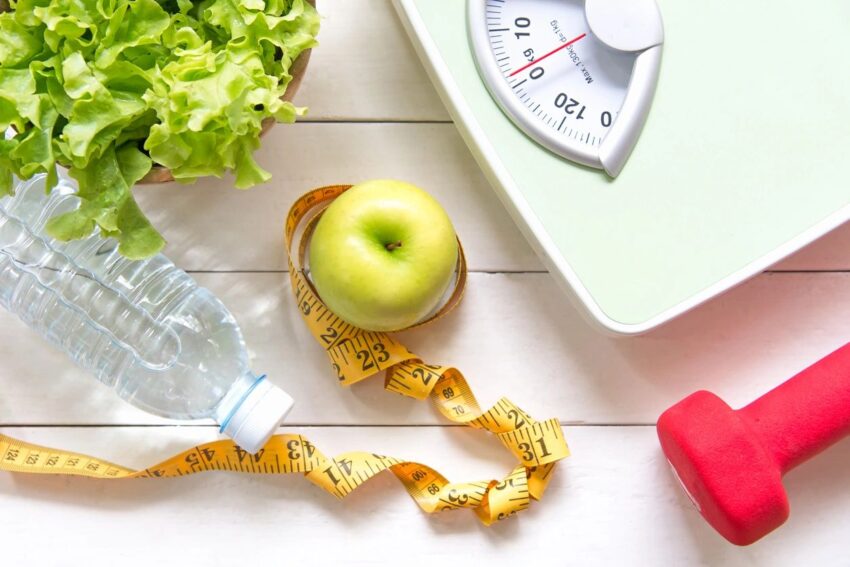Why Diets Work…and Then Don’t

Originally published October 15th 2020 at gathernourishgrow.com.
So you’ve started a diet and you’re seeing some weight loss, but before long, the weight loss stops. But, I haven’t changed anything, you think. So, What gives? Why are you no longer seeing results?
The thing is, any calorie deficit will result in weight loss. No matter the diet, whether it be keto, Atkins, South Beach, Zone, etc., calories are limited in some way or another.
That’s it. There’s nothing magical about it.
Sure, sometimes, if it is a healthier switch like eating more whole foods and including more plant-based foods, as one might do on a Paleo-style or Vegan diet, you could be excluding things like excess refined sugar and flour, which are easier to overeat and lack substantial nutritional value.
Or, perhaps this way of eating resulted in a discovery that certain foods like wheat or dairy don’t serve you as well and were inhibiting weight loss (this is absolutely not true for everyone, but for some it can be).
Or, you’ve started eating more fruits and vegetables and generally feel better, have more energy, and begin exercising.
However, a large part of it could still be related to a drop in calories in some way or another.
For example, avoiding gluten also means avoiding baked goods, crackers, pasta, bread, etc., all foods that add up quickly in calories. Eating more fruits and vegetables means these foods often replace higher calorie foods such as cheese and crackers for carrots and hummus, or a serving of pasta for broccoli.
So why then, does it stop working?
Well, it depends:
Sometimes, it doesn’t actually stop working, but it stops working quickly.
There is a theory called the set point theory, which basically means that our bodies generally stay within a certain weight range. So unless we are chronically restricting calories, or overeating, we tend to maintain our weight.
When we achieve a calorie deficit, we lose weight…for a while. Then, typically, we hit a plateau, and weight loss stalls. This is often when we think the diet is no longer working, quit, and go back to our former eating habits, which typically results in gaining back the weight we’ve lost. I have seen this happen over and over again. It’s often what my clients go through, sometimes many times, before eventually seeking advice from a dietitian.
What’s really happening, however, is our bodies are working towards a new set point. It has to find a “new normal” before continuing with weight loss. If we maintain this new weight for a number of weeks or months, it’s likely that weight would continue to decrease once again. Besides, it’s not recommended to be in a calorie deficit indefinitely. We typically want to increase our calories before dropping them again to continue with weight loss. This supports our metabolism and keeps it elevated.
Sometimes, the weight loss was too quick to begin with.
If the calorie deficit was too restrictive from the start, for example going from eating 2400 calories per day to 1200 calories and additional exercise (creating even more of a deficit), then our body thinks we’re starving. Eventually, willpower isn’t enough to deny hunger anymore and we give in to the bacon cheddar cheeseburger, fries, and large slice of cheesecake.
The dieting either ends here, or we try again, only harder this time, and the same thing happens: starve, binge, starve, binge, etc. The body no longer trusts that it will survive if it allows for weight loss, so weight becomes harder to lose. It needs to feel safe enough to lose weight. Additionally, the metabolism is now tanked and the body is not revved up enough for weight loss (yes, we need energy to lose weight!), instead it’s in conservation mode – conserving the energy it does have for necessary functions, not much else, like optimal thyroid function (which fuels our metabolism and impacts the whole body).
Sometimes, we get fed up with rules and restrictions.
If it’s a very restrictive diet that doesn’t just curb calories, but also certain foods or food groups, then often times willpower is our downfall yet again. We can say “no” and “I can’t eat that” for only so long before that chocolate cupcake looks too good to resist. Then, we feel guilty for “cheating” and totally give in to all the foods we denied ourselves for the past few weeks, months, or even years. I’ve been here and I see others go through the same all the time.
All diets work, but only for so long
They aren’t sustainable. One of my coworkers said that willpower is the weakest tool in our toolbox, and I couldn’t agree more.
This is why what I teach is not a diet at all, but general healthy eating and a food freedom mindset. It’s not glittery and shiny and doesn’t promise dropping 20 pounds in 20 days, but I’d rather you lose those 20 pounds in 20 weeks while learning nutrition principles and long term healthy eating habits to keep those 20 pounds off forever, than simply following a diet plan and gain 30 pounds back in the same time frame. Sustained weight loss is a product of health and habit changes, not short term, restrictive diets.
If you’re struggling and need more guidance with what to eat for sustainable health and weight loss, apply for my coaching program!




Leave a Reply